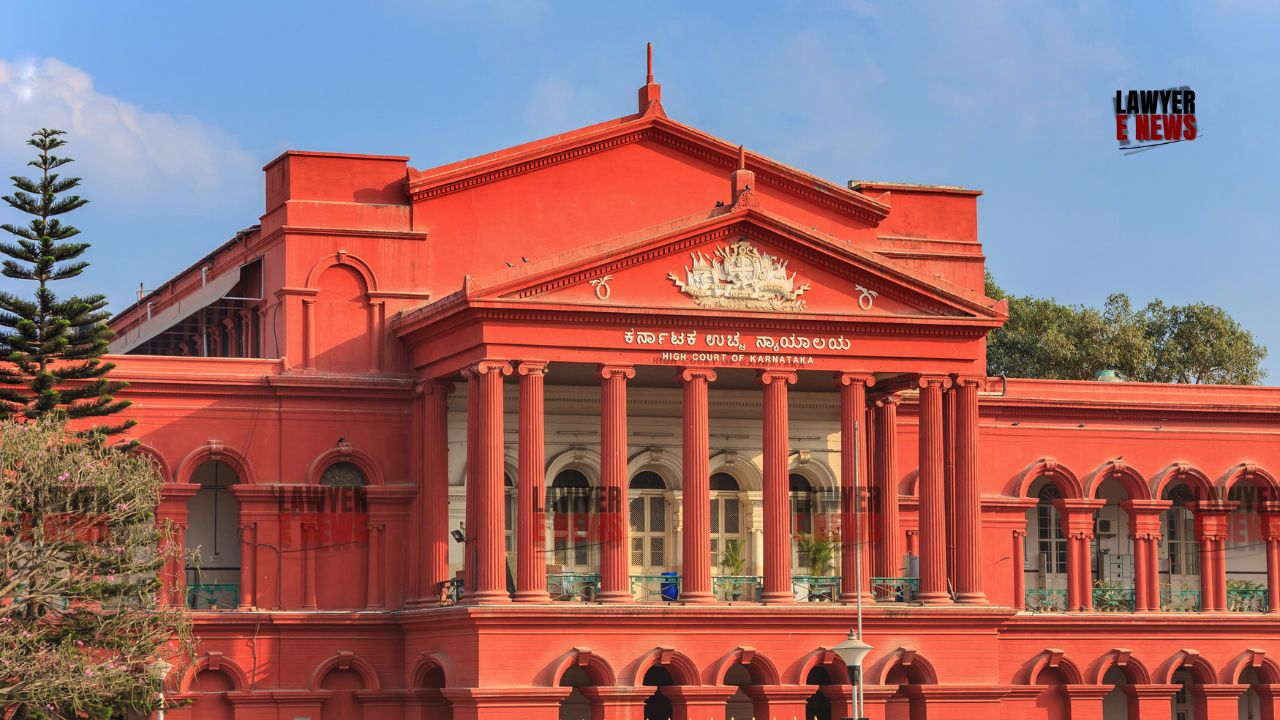-
by Admin
15 February 2026 2:36 AM



Karnataka High Court, presided over by Justice H.P. Sandesh, disposed of an appeal challenging an interim order passed by the Trial Court in a dispute involving the invocation of pledged shares. The High Court upheld the Trial Court’s interim order maintaining the status quo on pledged shares but directed the Trial Court to dispose of the pending interlocutory applications and jurisdictional challenge within 15 days.
The dispute arose from a Bond Trust Deed and Pledge Agreement involving the invocation of pledged shares of Mantri Infrastructure Pvt. Ltd., Mantri Developers Pvt. Ltd., and Agara Techzone Pvt. Ltd. The appellant claimed contractual rights under Section 176 of the Indian Contract Act, 1872, to invoke and sell the pledged shares due to unpaid dues exceeding ₹530 crores.
The case revolves around the invocation of pledged shares under a Bond Trust Deed and Pledge Agreement. On September 28, 2024, the appellant issued an invocation notice to sell the pledged shares of the respondent companies due to outstanding debts. The respondents subsequently approached the Trial Court, seeking a temporary injunction and a declaration that the invocation notice was invalid. They argued that the notice did not comply with contractual requirements, particularly regarding the five-day notice period for sale, and contended that the pledged shares, if sold below market value, would result in a financial loss exceeding their liability.
The Trial Court, on October 5, 2024, passed an interim order directing the parties to maintain the status quo regarding the invocation of shares until the applications were disposed of. Catalyst Trusteeship Limited challenged this order before the High Court, arguing that it infringed upon their contractual rights to enforce the pledge.
The High Court emphasized that its role was limited to reviewing the Trial Court’s interim order maintaining the status quo, not the substantive merits of the applications or the underlying dispute. Justice Sandesh noted:
“This Court cannot look into the merits of the case, since the order is not passed by the Trial Court on merits of the interlocutory applications. The relief is granted only to maintain status quo.” (Paras 18-19)
The appellant argued that the Trial Court lacked jurisdiction to entertain the suit as the dispute fell within the scope of the Commercial Courts Act, 2015. They had already filed an application under Order 7 Rule 10 CPC challenging the Trial Court’s jurisdiction.
The High Court declined to rule on this issue, directing the Trial Court to decide the jurisdictional challenge without delay:
“When the application under Order 7 Rule 10 CPC is pending before the Trial Court, the same has to be considered by the Trial Court to avoid premature adjudication.” (Paras 19, 23)
The appellant emphasized its rights under Section 176 of the Indian Contract Act, 1872, which grants a pledgee the discretion to sell pledged goods upon default. The appellant argued that the Trial Court had erred in restraining them from exercising this right, especially since the respondents had failed to make any payment despite default notices issued as early as 2020.
The High Court deferred adjudication on this issue, observing that:
“The Trial Court must decide whether the invocation notice complied with contractual and statutory requirements, including the notice period for sale, as raised by the respondents.” (Paras 20-22)
The High Court upheld the Trial Court’s decision to maintain the status quo, noting that the pledged shares had already been transferred to the appellant but had not yet been sold. The court found that maintaining the status quo would not cause irreparable harm to the appellant while preserving the respondents’ rights pending adjudication.
The Karnataka High Court disposed of the appeal with the following directions:
Status Quo Maintained: The parties were directed to maintain the status quo on the pledged shares for 15 days from the date of the order.
Expedited Disposal of Applications: The Trial Court was instructed to decide the interlocutory applications (I.A. Nos. 2 and 4) and the jurisdictional challenge under Order 7 Rule 10 CPC by November 25, 2024.
Timely Arguments: The High Court directed the counsels for both parties to conclude their arguments on the pending applications by November 19, 2024, without causing unnecessary delays.
Legal Takeaways
Status Quo Orders in Contractual Disputes: Courts may grant status quo orders to preserve the rights of parties while balancing the risk of irreparable harm to either side.
Pledgee’s Rights Under Section 176 of the Indian Contract Act: The law recognizes the discretion of pledgees to sell pledged goods upon default. However, procedural compliance, such as adequate notice, remains critical.
Jurisdictional Challenges in Civil and Commercial Disputes: The distinction between commercial and non-commercial disputes under the Commercial Courts Act, 2015, must be carefully adjudicated.
The Karnataka High Court’s decision underscores the importance of balancing competing rights in commercial disputes involving pledged securities. By upholding the status quo while directing expedited resolution of pending applications, the court ensured procedural fairness for both parties without infringing on substantive rights.
Date of Decision: 12/11/2024
